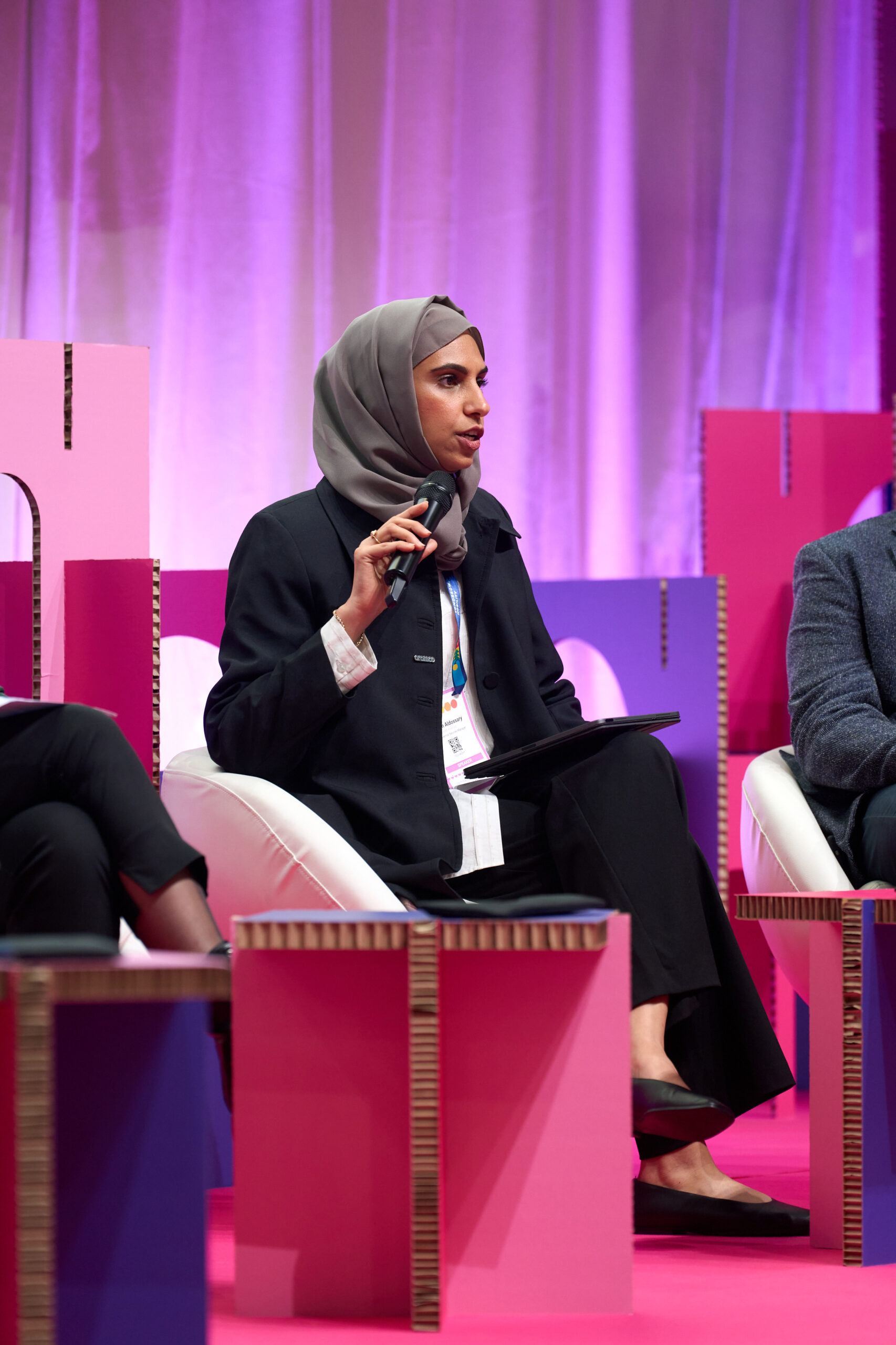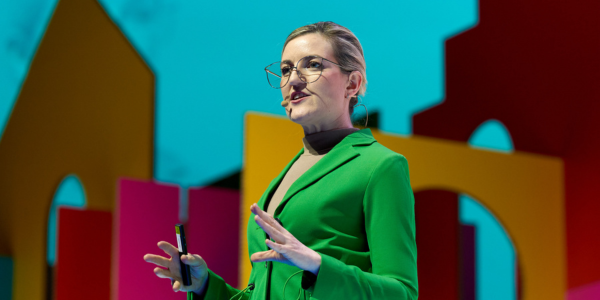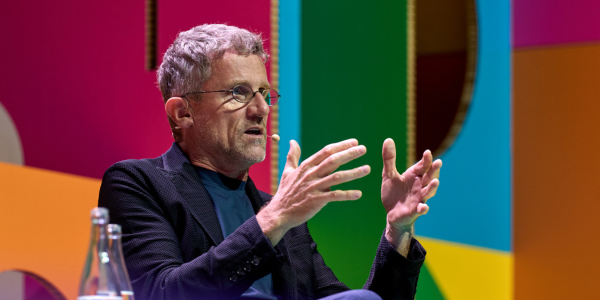CONGRESS OVERVIEW
The hottest topics on the green and digital transition of buildings & urban infrastructure

An essential gathering for a better built environment
TRANSFORMING HOW WE PLAN, BUILD, AND OPERATE URBAN INFRASTRUCTURE
A 3-day summit where global experts and industry leaders explored the sector’s most critical challenges, from vision to execution.
1 Main Stage featured inspirational and thought-provoking talks delivered by the biggest names in the industry. Actionable advice for all.
1 Thematic Stage was dedicated to innovative building solutions and sustainable urban infrastructure in action.
STRATEGIC BREAKTHROUGHS FROM KEY INFLUENCERS
Leading figures from the building & construction sectors took the stage at TBWC25.
Nikki Greenberg
Founder and Chief Innovation Officer, Real Estate of the Future
Roopa Mishra
Joint Secretary (International Cooperation, SBM and SCM), Ministry of Housing and Urban Affairs of India
Laura Pallares
Head of Europe, World Green Building Council
Carlo Ratti
Curator of the 19th International Architecture Exhibition
Ross Nazari
Chair and Professor, The Resilient Smart Cities Innovation Center (ReSInC), University of Memphis, USA
Petra Hurtado
Chief Foresight and Knowledge Officer, American Planning Association
Dr Orna Rosenfeld
Housing and Urban Affairs Advisor
Maria Buhigas
Chief Architect, Barcelona City Council
Ziad Ahmad Alameddine
Director of Urban Policy Research Program | The Arab Urban Development Institute
Areti Markopoulou
Academic Director, IAAC, Spain
Kyungsuk Lee
Consultant, Housing and Urban Development Division, IDB, USA
Claire Annesley
Founding Dean, Arts, Design & Architecture (ADA), UNSW Sydney
CONGRESS SCHEDULE
3 DAYS OF INDUSTRY-LEADING CONTENT
FOCUS ON KEY TOPICS

Design Tech
Advanced software like BIM (Building Information Modeling), virtual reality and augmented reality as well as AI simulations allow designers to experiment with complex forms and spaces to develop sustainable buildings and infrastructures for cities. In what ways are these digital tools enabling better-informed decisions and more innovative, resilient urban environments?
Digital Building Innovation
Digital tools allow to improve construction accuracy and reduce costs. However, many firms still struggle to integrate these developments with traditional workflows. Best practices to overcome these barriers include developing a clear digital strategy aligned with business goals, investing in continuous employee training, and fostering a culture that embraces innovation. But how to get there? Is there a formula for driving successful digital building innovation?
City Infrastructures
Smart sensors embedded in roads, bridges, and buildings can provide real-time data to improve the maintenance of these infrastructures, reducing downtime. Additionally, Digital Twins and AI allow planners and engineers to simulate different scenarios -with new materials, for example- improving decision-making and minimizing risks. How can cities better integrate these cutting-edge technologies to become more resilient, adaptive and livable?
Decarbonized Building
The building sector accounts for a large share of global energy consumption and greenhouse gas emissions. Therefore, adopting green building practices can significantly lower its environmental footprint. Retrofitting existing structures, sourcing sustainable materials and prioritizing circular economy principles, embracing innovation, can drive a major shift. How can cities favor these practices toward a more climate-resilient future?
Resilient City Planning
Adopting a holistic, technology-driven approach to urban planning to better prepare for climate change means designing flexible systems that can anticipate and respond to a range of challenges, from extreme weather events to long-term environmental shifts. Smart and green infrastructure, as well as data-sharing platforms are key. How can cities embed resilience into every layer of infrastructure planning and use data to guide adaptive policies that protect both people and ecosystems over the long term?
Retrofitting Urban Fabric
Starting from scratch is not always a good idea. Retrofitting urban infrastructures -that is to say, upgrading or modifying existing physical systems-, offers a more sustainable and often more cost-effective alternative to completely replacing outdated infrastructure, allowing cities to adapt to challenges like climate change, population growth, and technological advancements while minimizing disruption and preserving embodied energy and resources. How can cities adopt retrofitting strategies while honoring cultural significance and serving communities sustainably into the future?
PropTech
Properties are no longer bought, sold, managed, and experienced as they were before. Technologies like AI-powered property management tools, blockchain for transparent transactions, and virtual reality for immersive property tours are rapidly redefining the real estate industry by making it more digital, data-driven, and customer-centric. How can cities adopt these PropTech innovations to make more informed decisions to improve the efficiency and sustainability of the sector?
Housing
Creating affordable and sustainable housing solutions has become a significant challenge in many cities. However, it requires a mix of innovative design, smart policy and new construction technologies which are not always easy to adopt. What are the best ways to leverage new building technologies, mixed-income developments and incentives that make housing projects more viable and community-driven to meet local needs while fostering social inclusion?
TBWC25 UNMISSABLE SESSIONS
RELIVE ALL THE TALKS!
WHAT DOES TOMORROW.BUILDING MEAN FOR ITS ATTENDEES?
Here's what some of our previous participants have said about their experience at the event:

Tell us what interests you and get the latest news







